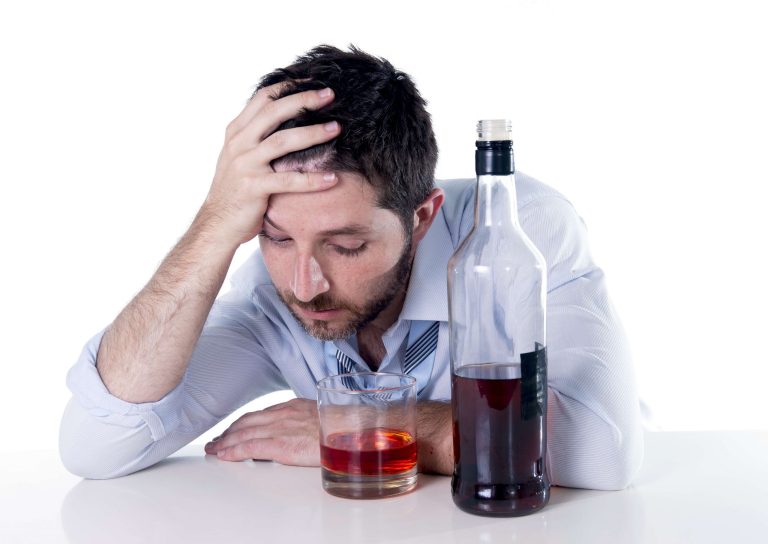If that’s an issue for you, changing your environment can help you heal. If you abruptly stop or decrease your intake of the substance, your body is once again thrown off balance and symptoms of withdrawal may result. Such symptoms are often both physical and mental, and can potentially be dangerous depending on the type of drug. All drugs to which the body has adapted create some type of withdrawal symptom—physical, emotional, or both—when abruptly discontinued. Depending on the duration and degree of substance use, detox is advised for those who abuse alcohol, benzodiazepines and barbiturates, stimulants including cocaine and methamphetamine, and opiates such as heroin and oxycodone.
- It gets in the way of recovery, self-acceptance, and accessing help when needed.
- These may include anti-anxiety medications, anticonvulsants, antipsychotics, or other drugs designed to treat nausea or sleep problems.
- Brains are plastic—they adapt to experience—and people can change and grow, develop an array of strategies for coping with life’s challenges and stressors, find new means of satisfaction and reward, and negotiate life ahead.
- Long-term recovery is not a final destination but rather an ongoing process of facing and coping with life without retreating into addictive behaviors.
- An exciting part of this period is that it can lead you to a happier life full of welcomed change and constant improvement.
- If you have unavoidable commitments like childcare, this can be a barrier to treatment.
How Long Does Addiction Recovery Take?
A dopamine hit brings about pleasure and is then quickly followed by pain, or a come-down, in order to keep us motivated, says psychiatrist Dr. Anna Lembke. Cravings diminish and disappear in time unless attention is focused on them. Negotiating with oneself for a delay of use, which doesn’t deny the possibility of future use, and then getting busy with something else, capitalizes on the knowledge that cravings dissipate in about 15 minutes. Curious about whether your insurance will cover the entirety of your addiction care? Fill out the form on the page below and an American Addiction Centers admissions navigator will inquire with your insurance company to discover your benefits. Remember that, if you are suffering from a drug overdose, be sure to call 911 immediately or make your way to the nearest physician.

Medications
These milestones serve as reminders of progress and can provide individuals with a sense of accomplishment and motivation to continue on their recovery journey. Sometimes it is only after several relapses that a person discovers what recovery from an addiction means for them. Identifying and developing effective ways of coping with http://teamofthebest.ru/how-do-you-get-alcohol-out-of-your-system-fast/ stress are crucial during the action stage.
action steps for quitting an addiction
- While the process may take several years, the outcome is a happier, healthier life where you have the freedom to fulfill your full potential.
- Millions of people do, whether they were once compulsive users of opiates, alcohol, or gambling.
- Approaches like motivational interviewing can be especially helpful in the contemplation stage of recovery, helping people reach their goals at their own pace and on their own terms.
- It also covers the symptoms of withdrawal that you might experience and some of the effective treatment options that are available.
- However, as the National Institute on Drug Abuse (NIDA) explains, relapse does not mean that treatment has failed.
- Group therapy allows patients to share their struggles, learn from each other, and give and get peer and counselor support.
That process can take months or years, and many types of help and supportive resources can be accessed all along the way. It’s important to note that these timeframes are approximate and can be influenced by factors such as the severity of addiction, individual resilience, and the presence of any co-occurring mental health conditions. Seeking professional help and support during the early stages of recovery can greatly assist individuals in navigating through this challenging phase.
Prepare to Change

Addictive behaviors have similar neurological and psychological processes and create rewarding feelings and sensations, so replacement addictive behaviors are common among those trying to overcome an addiction. Focusing on finding rewarding, healthy strategies that support your long-term recovery. Although addiction tends to cut people off from longtime friends, social support is a significant predictor of recovery. They may know something about the person’s deepest aspirations and voice them as a reminder that can help the person remain on the road to recovery. And they can help plan healthy joint activities to ensure that there are good days. Brains are plastic—they adapt to experience—and people https://stihi.lv/index.php?option=com_k2&view=itemlist&task=user&id=14521 can change and grow, develop an array of strategies for coping with life’s challenges and stressors, find new means of satisfaction and reward, and negotiate life ahead.
- These stages can be represented as a cycle, and in theory, people should go through these stages in sequence.
- Withdrawal is the combination of physical and mental symptoms a person experiences after they stop using or reduce their intake of a substance such as alcohol and prescription or recreational drugs.
- There are strategies of distraction and action people can learn to keep them from interrupting recovery.
- In most, days are structured with individual and group therapy, medication management (if needed), and activities focused on rebuilding general physical and mental health.
- Support from friends and family can help someone overcome drug addiction.
- This model was developed from research looking at how change occurs in “natural recovery” from addictions.
• Therapy also addresses the co-occurring mental disorders, such as depression and anxiety, that are a common accompaniment to addiction. Based on a person’s symptoms, stressors and supports, their treatment team will recommend the best option. Inpatient rehabilitation at a full-time facility provides a supportive environment to help people recover without distractions or temptations.
A routine review of one’s treatment plan may be necessary to determine if another method could be more effective. When people take drugs, the brain is flooded with chemicals that take over the brain’s reward system and cause them to repeat behaviors that feel good but aren’t healthy. Because change is so difficult, it’s useful to have a guide when attempting to kick an https://www.homereonflint.com/tag/repair addiction to drugs, alcohol or behavior.
Follow us on social media
Part of maintaining long-term recovery requires a person to accept these aspects of addiction. Arelapseis certainly a troubling event, but if the person gives up on their recovery when this happens, they will never succeed. Instead, people can benefit from using the relapse as a new opportunity to reevaluate and reinvestigate their treatment. Overcoming a SUD is not as simple as resisting the temptation to take drugs through willpower alone. Recovery may involve medication to help with cravings and withdrawal as well as different forms of therapy. It may require checking into a rehabilitation facility.45 Recovery can be challenging, but it is possible.
